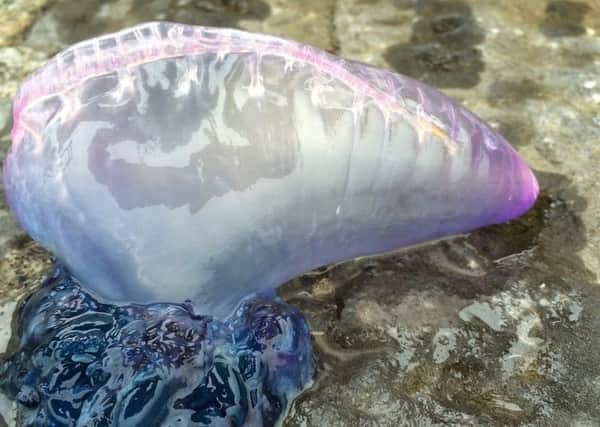Warning amid largest Portuguese Man o'War infestations in 100 years


Technically not a jellyfish, but often referred to as such,these venomous siphonophores can give a very strong sting and in some people, this can lead to anaphylactic shock or seizures.
Local Authorities in Donegal, Mayo, Galway, Clare, Kerry and Cork have reported them on their shores and Irish Water Safety is urging vigilance along the north west, south and west coastlines.
Advertisement
Hide AdAdvertisement
Hide AdThey say the tropical maritime air experienced for almost two months now, coupled with very little northerly winds and sea water temperatures at approximately 15 degrees Celsius, has led to one of the largest infestations of the Portuguese Man o’war land on our western seaboard in over a hundred years.
There is also a new moon on Saturday which will lead to spring tides.
Surfers, kite surfers, swimmers, kayakers, divers and walkers are urged to keep a vigilant eye open for these creatures, the majority of which have been reported in south and southwest facing bays.
There have been reports of in excess of 80 landing on the South Harbour in Cape Clear an in excess of 20 on Keel Bay in Achill. They have also been reported in Kincasslagh in Donegal.
Advertisement
Hide AdAdvertisement
Hide AdIrish Water Safety has issued some recommendations if you come across the Portuguese Man o’War. They state you must ensure you don’t get stung yourself when aiding others; remove any attached tentacles with a gloved hand, stick or towel; do not rub the affected area, this may result in further venom release; rinse the affected area with sea-water (do not use fresh water, vinegar or urine) and apply a “dry cold pack” to the area (i.e place a cold pack or ice inside a plastic bag and then wrap this package in a t-shirt or other piece of cloth).
Seek medical attention if there is anything other than minor discomfort. As the sting can cause anaphylactic shock, if you are feeling unwell go to A&E for treatment).
Members of the public should report the sightings of these two jellyfish to the relevant Local Authority or local Water Safety Development Officer http://www.iws.ie/contact/area-contacts.212.html
To download a Jellyfish photo identification Card and First aid treatment information click on
http://www.iws.ie/beach/jellyfish-safety.321.html